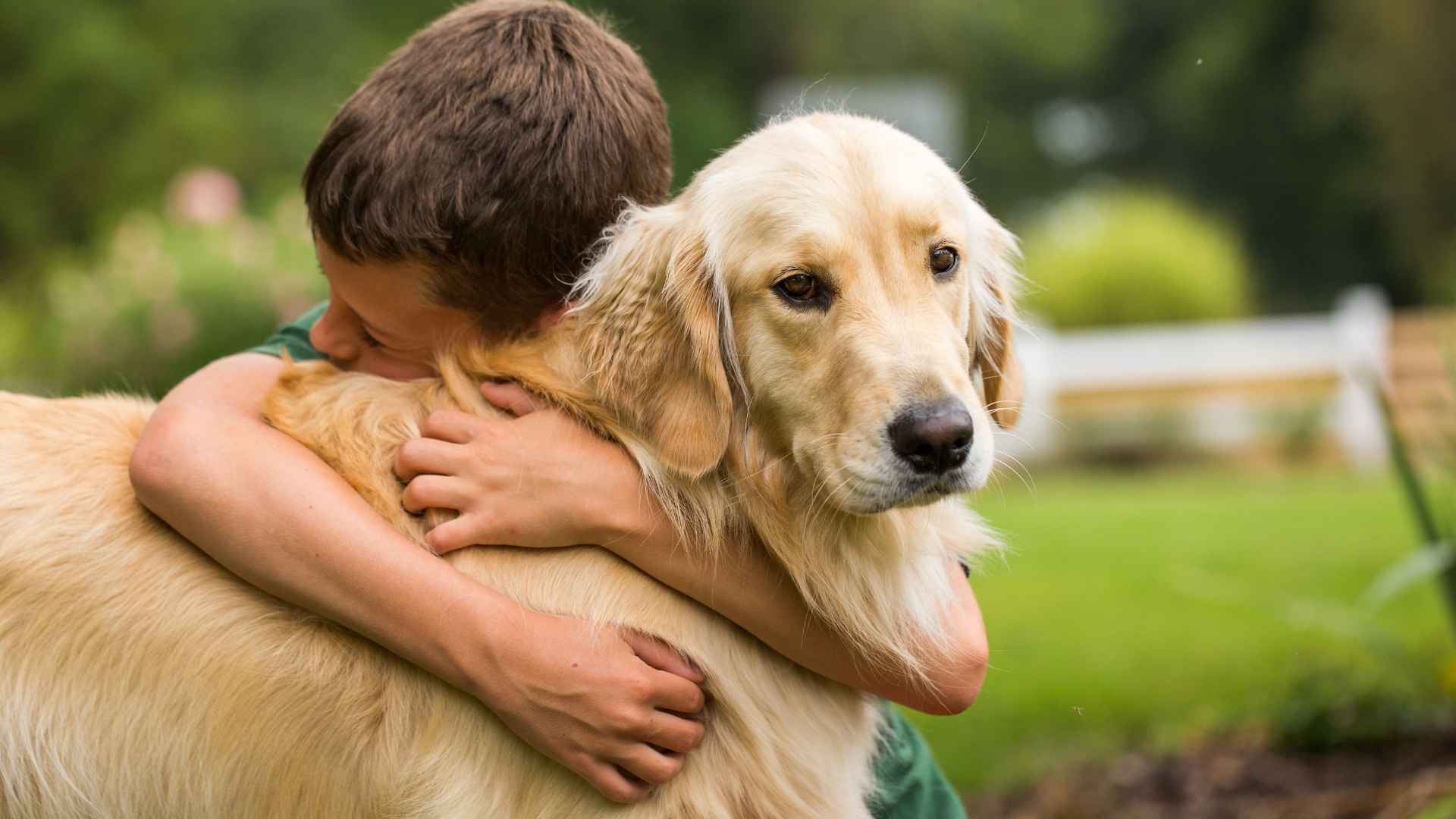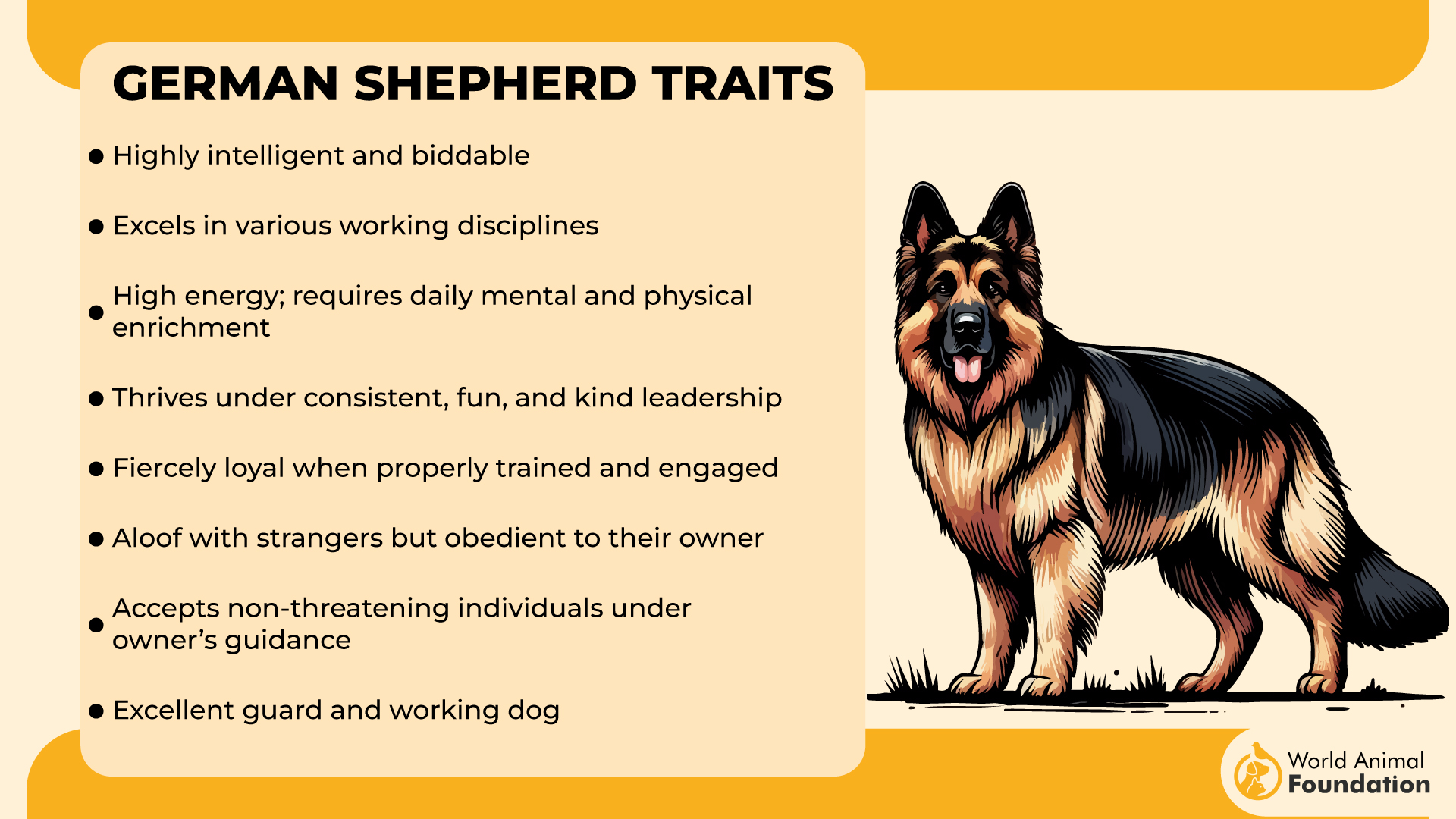When it comes to choosing a loyal furry companion that tends to stay close rather than wander off, certain dog breeds stand out for their affectionate and bond-building nature. These dogs not only promise loyalty but also offer peace of mind with their predictability in staying nearby, whether on a walk or relaxing at home. Perfect for families and individuals seeking a dependable partner, these seven breeds are known for naturally sticking close to their owners, creating a harmonious and secure environment filled with companionship and love. Discover the ideal breeds that redefine what it means to have a true “best friend.”
They say, “Loyalty is a dog’s best trait,” and some breeds take that to heart—sticking to their owners like a shadow. While many dog breeds have an instinct to wander, others prefer to stay close, forming deep bonds with their families. Whether it’s their breed-specific traits, strong attachment, or early obedience training, these dogs are far less likely to run away.
According to a study published in the journal Animals, found that about 14% of dogs and 15% of cats in the U.S. become lost at least once over a five-year period. Therefore, the remaining 86% of dog breeds naturally resist the urge to stray. These dogs exhibit an independent nature but prioritize their bond with their owners over adventure.
Having a dog that stays close makes life easier and safer, especially if you enjoy off-leash walks or have an open yard. If you’re looking for a companion who will remain by your side, these 7 breeds are known for their loyalty and tendency to stick close to home.
Dog Breeds Least Likely to Run Away
1. Bichon Frise
The Bichon Frise is a charming small dog with a history dating back to Mediterranean sailors and European nobility. These dogs were bred primarily as companions, thriving in close human contact rather than as working dogs.
Bichons are affectionate lapdogs who prefer snuggling with their owners over wandering alone. According to Purina, their playful nature and desire to be the center of attention make them naturally clingy. They would love to accompany the family on all outings.
Bichons can develop separation anxiety if left alone for long periods, which may lead to unwanted behaviors such as barking or chewing. To prevent distress, owners should ensure their Bichon gets plenty of social interaction, whether through play, training, or companionship.
2. Cocker Spaniel
Cocker Spaniels have long been beloved as family pets, though originally bred as skilled hunting companions. Their keen noses and love for adventure once made them excellent retrievers, but today, they are better known for their affectionate nature and loyalty.
As mentioned in PetMD, Cocker Spaniels are highly people-oriented and form deep emotional bonds with their owners. Their strong desire to please makes them responsive to good training, which helps keep them from wandering.
Despite their loyalty, Cocker Spaniels still have a moderate hunting instinct and may occasionally be tempted by an interesting scent. To keep them safe, early recall training is essential, as is ensuring they get plenty of physical and mental stimulation.
A well-exercised Cocker Spaniel is far less likely to attempt an escape, and a secure fence in the yard can prevent any curious dashes after small animals. Their adaptable nature makes them well-suited for both city and rural living, as long as they are given love, attention, and activity.
3. Shih Tzu
Shih Tzus have been devoted companions for centuries, originally bred for Chinese royalty. Shih Tzus thrive in a home environment where they can be close to their owners. They are naturally attached to their human families and rarely feel the urge to run away.
The American Kennel Club (AKC) states that these dogs prefer lounging in their owner’s lap, following them around the house, or engaging in playful indoor activities.
Because of their small size, Shih Tzus are not known for jumping over a fence or digging under it. However, their stubborn nature means they require positive training to reinforce obedience. Regular socialization and training early can prevent them from developing overly clingy behavior, which might lead to separation anxiety.
While they enjoy walks, they don’t need a large yard to be content—so long as they have their favorite human close by, they are perfectly happy.
Which Breed Do You Think Forms the Deepest Emotional Attachment?Which of these loyal breeds forms the strongest bond with their owners? Vote and share your thoughts!
4. Labrador Retriever
Labrador Retrievers are one of the most popular dogs in the world, and for good reason. According to Royal Canin, they were originally bred for retrieving game and assisting fishermen. Labs are highly intelligent and eager to please. Their strong attachment to their parents makes them unlikely to run away, and they are highly responsive to training.
Because they are naturally obedient, Labrador Retrievers excel at recall commands and can be trusted without restrictions in safe environments. However, their energetic nature means they require ample daily exercise to prevent boredom.
Without proper stimulation, Labrador Retrievers may attempt to jump a fence or explore areas they shouldn’t. Ensuring they have plenty of structured activities, such as fetch or agility training, will keep these dogs safe and content at home.
5. German Shepherd
German Shepherds were originally bred as herding dogs and later became top-tier guard dogs and police K9s. Their unwavering devotion to their pet guardians makes them one of the most loyal hounds in the world. A well-trained German Shepherd will never stray far from its family, as they naturally feel responsible for protecting their home and loved ones.
Although they are highly trainable, German Shepherds need good training from an early age to ensure they understand boundaries. They are naturally intelligent and enjoy having a job, so activities like obedience training, agility, or advanced commands can keep them mentally stimulated.
A secure yard is necessary for outdoor time, but given the choice, they would rather be inside near their family than wandering off on their own.
6. Border Collie
Border Collies are well known for their intelligence and work ethic. Originally developed as farm dogs for herding sheep, they have an incredible ability to follow commands and stay focused on their task. Border Collies’ high intelligence makes them one of the easiest breeds to train, which significantly reduces their tendency to run away.
Although they are loyal, Border Collies have high energy levels and need plenty of physical and mental stimulation. Without sufficient exercise, they may attempt to explore beyond a fence out of boredom.
Pet parents should ensure they are provided with regular agility exercises, puzzle toys, or herding-style activities to keep Border Collies engaged and prevent wandering behavior.
7. Pug
Pugs are small dogs that have been bred for centuries to be loyal companions, making them one of the least likely breeds to roam. Their affectionate nature and love for human interaction mean they prefer sticking close to their family rather than exploring independently.
Pugs are not built for intense activity, and their playful nature is best satisfied through short bursts of fun rather than long adventures.
A securely fenced yard is still recommended to keep these dogs safe. However, their small size and lack of wanderlust make them one of the easiest breeds to manage off-leash.
Conclusion
Some dog breeds are more independent, while others thrive on human companionship and prefer to stay close to their owners. From the ever-loyal German Shepherds to the affectionate Shih Tzu, these dogs are unlikely to run away when given the love and care they need.
Properly trained recall skills, a secure yard, and a strong bond with their family ensure these dogs remain close by, providing comfort, security, and endless companionship.
In conclusion, selecting a dog breed known for its tendency to stay close can be a beneficial choice for prospective pet owners seeking loyalty and companionship. Breeds that are less likely to run away often possess strong family bonds, high intelligence, and a desire to please their owners. These traits make them ideal for families and individuals who value a secure and devoted pet. Ultimately, while each dog is unique, breeds that naturally prefer staying nearby can offer peace of mind and enrich human-dog relationships through consistent companionship and trust.









